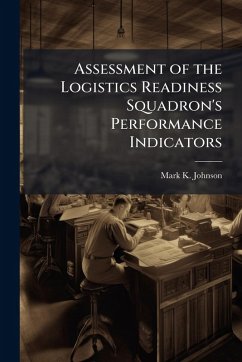
The Assessment of Program Managers' Perceptions of Importance Of Stability to Overall Project Outcomes
Versandkostenfrei!
Versandfertig in über 4 Wochen
18,99 €
inkl. MwSt.

PAYBACK Punkte
9 °P sammeln!
This research investigates the manager's perceptions of the importance of stability to overall project outcomes. The assessment is based on the importance and usefulness of both the general attributes of management for the activities in a specific program, and the specific measures being employed by the managers. The classical measures of Cost, Schedule, Performance were assessed as well as Earned Value and proposed measures of Stability. In this research, the scope is limited to the management of relatively complex, large-scale projects involving the design, development and delivery of milita...
This research investigates the manager's perceptions of the importance of stability to overall project outcomes. The assessment is based on the importance and usefulness of both the general attributes of management for the activities in a specific program, and the specific measures being employed by the managers. The classical measures of Cost, Schedule, Performance were assessed as well as Earned Value and proposed measures of Stability. In this research, the scope is limited to the management of relatively complex, large-scale projects involving the design, development and delivery of military aircraft and support systems. In order to obtain data for the research, a survey method was employed. The population being sampled for the survey included the managers at various levels in the programs managed by System Program Offices (SPOs) such as C-17, F-16 and F-22. Results indicated that the newer measures of Stability and Earned Value were well received and had both importance and usefulness to the managers. Perceptions differed between programs depending on their size; and between managers depending on their level of authority. This was pronounced with regard to the newly introduced Stability concept. This work has been selected by scholars as being culturally important, and is part of the knowledge base of civilization as we know it. This work was reproduced from the original artifact, and remains as true to the original work as possible. Therefore, you will see the original copyright references, library stamps (as most of these works have been housed in our most important libraries around the world), and other notations in the work. This work is in the public domain in the United States of America, and possibly other nations. Within the United States, you may freely copy and distribute this work, as no entity (individual or corporate) has a copyright on the body of the work. As a reproduction of a historical artifact, this work may contain missing or blurred pages, poor pictures, errant marks, etc. Scholars believe, and we concur, that this work is important enough to be preserved, reproduced, and made generally available to the public. We appreciate your support of the preservation process, and thank you for being an important part of keeping this knowledge alive and relevant.












